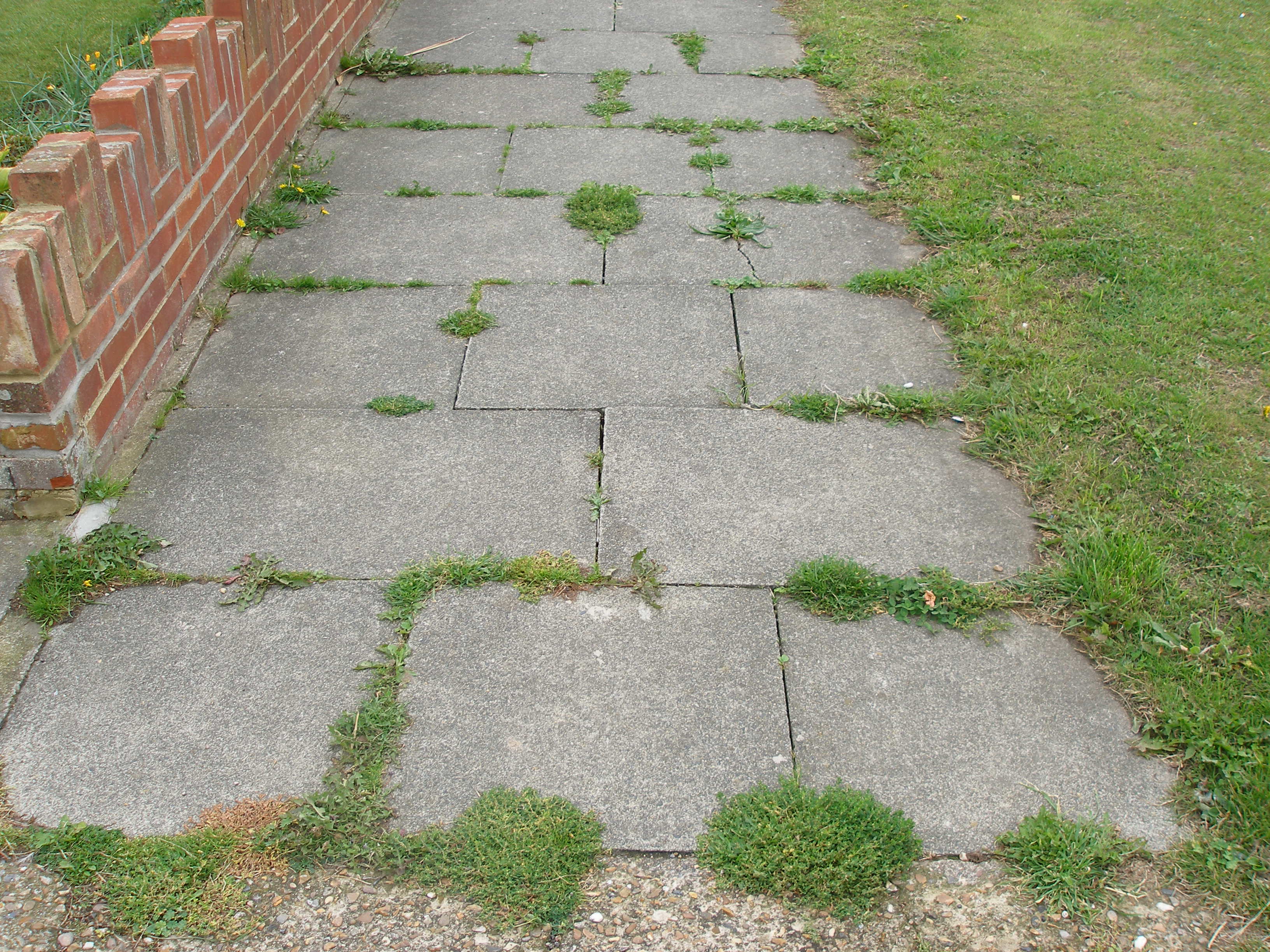A ban on using glyphosate weedkiller except for exceptional cases is to be considered by councillors.
Proposals going before Brighton and Hove City Council’s Environment, Transport and Sustainability Committee would see the herbicide used on Japanese knotweed and tree stumps only with immediate effect.
The City Environmental Management Service wants to phase out glyphosate across all council departments and phase out other pesticides by 2022.
Glyphosate – which is also known by the brand name Roundup – has been sprayed in parks and on playing fields as well as on roads, pavements and housing land in the past.
During the summer the council employed extra members of staff to clear weeds by hand at trouble spots across the city as no spraying took place this year.
In areas where fewer pedestrians walk along pavements, weeds were growing between paving slabs and in gutters.
The cost of carrying out manual weeding for a full season is £70,000 which includes paying six extra seasonal staff on temporary six-month contracts.
A report going before the committee on Tuesday 26 November said that an extra £33,000 is budgeted for next year towards manual weeding as no effective alternative had been found.
A demonstration of hot foam treatment was carried out in September but did not kill weed roots.
Roundup has been the subject of big payouts in America after a series of high-profile court cases brought against the maker Monsanto amid claims that it causes cancer.
In 2015, the International Agency for Research on Cancer (IARC) said that glyphosate was “probably carcinogenic to humans”.
Since then, there has been a significant debate about whether herbicides, including glyphosate, are safe to use.
The Association of Public Service Excellence (APSE) has said that there are national agencies that have declared glyphosate safe while some countries have banned it.
City Parks has cut pesticide use by using woodchip to keep weed growth down in parks and on housing estates.
It also selects disease-resistant plants for the Preston Park Rose Gardens.
The Level is a pesticide-free park and the new landscaping in Victoria Garden is designed in the same way.
For three years no insecticide has been used in local parks.
As part of the review in autumn 2020 a survey will seek residents’ views.
The Environment, Transport and Sustainability Committee is due to meet at Hove Town Hall on Tuesday 26 November. The meeting is scheduled to start at 4pm and should be open to the public.










The report on the council web site contains lots of misleading information and omits the latest status (such as the US FDA demanding claims that Glyphosate is carcinogenic are removed from products).
It is, perhaps, enlightening that your “expert evidence” comes from a law firm (Walker Morris) and the anti-pesticide activists (PAN UK) who both make a number of scientifically inaccurate statements in support of their claims.
I’m not sure how the council has “done the sums” or how the 8 contract operatives working half the year will be able to keep the entire city weed free manually. It does seem that they hope that residents will “take up the challenge” and do the weed removal for you.
It will be interesting to see how the operatives will be scheduled to cover all the streets on the city that don’t, like the area where I live, ever have regular street cleaning or repairs. I will look forward to seeing the process implemented.
The good news is that it appears residents and businesses can still use any pesticides they like (including Glyphosate) in their own buildings and gardens and on the pavement and gutter outside. The ban, as such, just limits what council staff and their contractors use and it seems it only really applies to one herbicide.
Trump has been weakening & abolishing US environmental protections that interfere with business profitability of his cronies’ interests